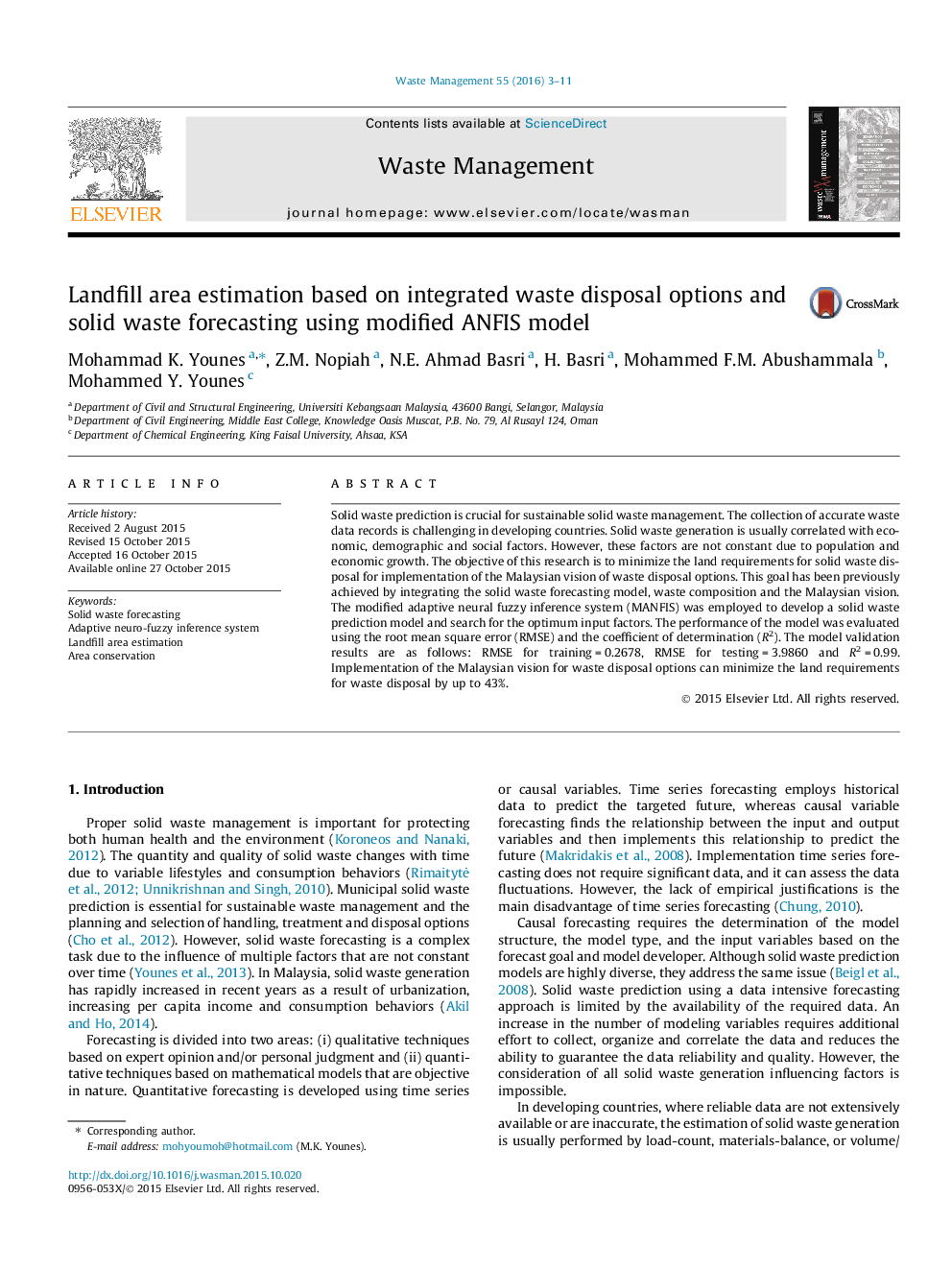| Article ID | Journal | Published Year | Pages | File Type |
|---|---|---|---|---|
| 4471177 | Waste Management | 2016 | 9 Pages |
•Solid waste forecasting is essential for sustainable waste management.•Waste generation is related to demographic, economic and social factors.•The optimum factors that affect waste generation were determined.•Landfill area required to dispose the waste would be reduced by 43%.
Solid waste prediction is crucial for sustainable solid waste management. The collection of accurate waste data records is challenging in developing countries. Solid waste generation is usually correlated with economic, demographic and social factors. However, these factors are not constant due to population and economic growth. The objective of this research is to minimize the land requirements for solid waste disposal for implementation of the Malaysian vision of waste disposal options. This goal has been previously achieved by integrating the solid waste forecasting model, waste composition and the Malaysian vision. The modified adaptive neural fuzzy inference system (MANFIS) was employed to develop a solid waste prediction model and search for the optimum input factors. The performance of the model was evaluated using the root mean square error (RMSE) and the coefficient of determination (R2). The model validation results are as follows: RMSE for training = 0.2678, RMSE for testing = 3.9860 and R2 = 0.99. Implementation of the Malaysian vision for waste disposal options can minimize the land requirements for waste disposal by up to 43%.
